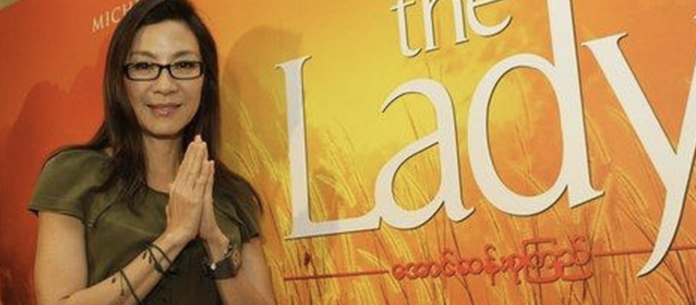We just finished the Oscars, and we saw the usual displays of virtue signaling as well as ethnic. salutations. Michelle Yeoh won for her outstanding acting performance, but it was not enough. She was also hailed for being the first Asian winner. Hollywood seems to be unable to stop focusing on the checkbox demographics in every instance.
Another example is Ruth E. Carter’s win in Best Costuming Sunday. This was for her design of “Black Panther: Wakanda Forever.” Carter was also praised as being the “first black woman” to win two Oscars.
Hidden in these laudatory achievements lies the fact that Hollywood is revealing its history of intolerance while they praise themselves for their woke recognition. You are only now giving awards to black women, really? Michelle Yeoh is the “first” Asian actress. However, you also acknowledge that Hollywood has not been able to recognize Asians in this way for almost a century.
Ms. Yeoh’s mind-melting description is due to the fact that previous Oscar-caliber actresses were Asian. Merle Oberon was nominated for 1935’s Merle Oberon, and Vivian Leigh won two times. However, both women tried to hide their heritage so that they wouldn’t be limited in their opportunities to earn roles. This should be a sign of how racist and restrictive the studio system has been over generations. These same elites can still lecture the rest of America about its systemic racism and intolerance.
Hollywood is aware of this problem. We see it in the way that they have tried to solve it in recent years. The Academy of Motion Picture Arts and Sciences, the organization that puts on The Oscars, has rewritten its membership guidelines in order to increase the number of women and people from POC backgrounds. A new policy has been put in place for future film consideration. If this policy is not analyzed seriously, it could lead to a minefield of problems similar to what’s depicted in a war story.
The Academy’s solution, dubbed Representation and Inclusion Standards for Emligibility (RAISE) was initially implemented in small parts starting in 2021. It will now be fully effective for all films that are to be considered for next year’s Oscar season. This is Hollywood’s DEI program and is based on methods that were used in Affirmative action. These two problematic policies should be enough to show that there will be problems.
The new Oscars rules will apply to next year’s Oscars. They will require that films meet two of the four inclusion standards in order to be eligible for best picture. (See right). For example, a film could meet the inclusion standard by having its main or supporting actor come from an underrepresented ethnic or racial group or having a storyline that is centered around an under-represented group (e.g., women, LGBTQ, and people with disabilities). You could offer a paid internship or training opportunities below the line for people from underrepresented backgrounds.
Problem is, producers aren’t just the financiers and motivators of a film; they are also the employers. Producers are subject to labor laws and standards. The Academy may require that productions violate existing laws in order to meet some of its requirements. The Hollywood Reporter spoke with one director about this problem.
An independent filmmaker filled out an online application to submit his movie for Oscar consideration last fall. But he was caught off guard by questions on the Academy submissions site. The site requested information about the cast and crew members’ race, gender, sexual orientations and health. It also asked questions about their mental and physical health, such as whether they were suffering from chronic pain or autism. The filmmaker said, “I don’t know, maybe someone was neurodivergent.” It’s not my job to ask. Did they do their jobs? Great. How are we to find out who is gay, when it’s against the law to ask?
This is made worse by The Academy’s apparent inability to learn from others’ mistakes. Many workplaces have abandoned affirmative action as a controversial standard. DEI has been proven to be a failing policy and more entities are dropping mandates from this framework. There’s also a little humor: “The RAISE forms are modeled after British Film Institute diversity standards that were used to determine U.K. funding eligibility, and certain BAFTA categories.”
You might consider revisiting this idea. The British Film and TV Awards caused quite a stir last month after they introduced new inclusion standards to their operations. Nearly all the winners were white. Only two of 49 recipients of trophies were ethnically-qualified, and they were white Hispanics.




